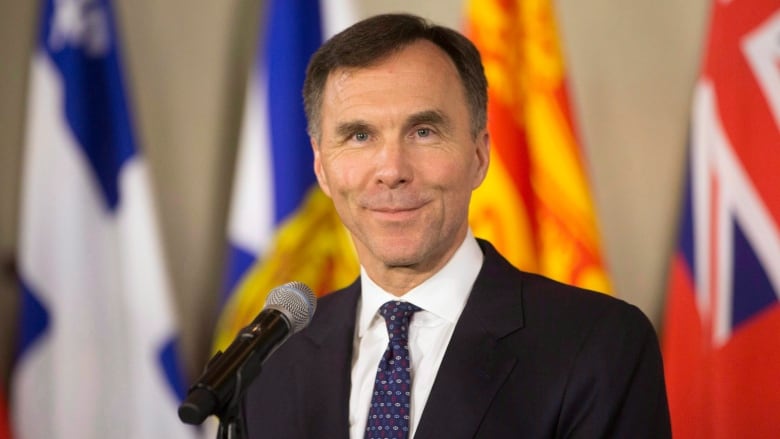Does Gm Still Owe The Government Money 2017
The federal government bailed out GM and Chrysler in 2009 with $13.7 billion in public money. Only about $10 billion was ever recovered. And CBC News has obtained documents suggesting at least some of the remaining loan has been written off as unrecoverable. Finance Canada is staying mum, saying the matter is commercially confidential.

The Liberal government appears to have written off a taxpayer loan to the auto industry in March, but is refusing to say how much the loan was for or provide any other details. Ottawa has been carrying large, stagnant loans to the auto sector on its books, and repayments have been past due since at least 2010. That was the year that followed a federal bailout of GM and Chrysler that was made in co-ordination with a much larger cash injection by Washington. The most-recent public valuation of commercial loans that remain in arrears shows a total of $1.15 billion still owed to the federal government as of March 2017. Most of that money was part of a $13.7-billion injection of Canadian taxpayer money into the auto sector after the 2009 global financial meltdown. These past-due loans are held in the Canada Account. It is administered by Export Development Canada (EDC), which books high-risk or high-value loans that are backed by the federal government itself rather than by any Crown corporation or federal financing agency. Some of Ottawa's auto-sector bailout came in the form of Canada Account loans to help wind down bankrupt versions of the two companies — about $220 million to so-called "Old GM" and another $1.3 billion to so-called "Old Chrysler." The remainder of Canada's bailout money was used to help create new corporate versions of both companies that were free from the obligations of their former incarnations. "Neither Canada nor the U.S. expected any of the loans to be recovered from 'Old Chrysler'," says a 2014 Industry Canada accounting of the bailouts, confirming the money injected into bankrupt Chrysler was considered unrecoverable from the very beginning. And CBC News has obtained internal documents under the Access to Information Act suggesting that at least part of these past-due loans is finally being written off. EDC wrote to Finance Minister Bill Morneau on Feb. 16 this year asking "to forgive amounts owing under a Canada Account loan." "EDC is therefore seeking Ministerial Authorization to forgive the remaining [dollar figure blacked out] so that the same amount may be written off from the Canada Account and allow for final closure of this matter," says a heavily censored letter, which obscures the value of the write-off. Morneau then signed a form approving the write-off, though details of the borrower are blacked out. The memo to Morneau requesting the write-off specifically cites the auto-sector bailouts in 2009, and includes attachments detailing Canada's past support for GM and Chrysler during the global crisis. No other Canada Account transactions are referred to in the released sections of the material. Asked for details of the March write-off, Finance Canada spokesperson Dan Lauzon said "write-offs are a last resort and are rare. We are unable to speak to the specifics of any particular write-off given commercial confidentiality." Another Finance spokesperson, Jack Aubry, said any write-off made before March 31 would be reported in the Public Accounts of Canada in the fall. A spokesperson for EDC, Shelley Maclean, referred all questions about the write-off to Finance Canada. GM did not respond to questions and a Chrysler spokeswoman only provided the firm's latest financial statements, which contain no information about any Canada Account loan. A political scientist who has studied the auto-sector bailouts said Ottawa's lack of transparency is typical of the way governments subsidize business. "The fact that governments loan and finance corporations, including through agencies such as EDC, which then turn around and deny access to information about written-off amounts, indicates another problem with loans, grants and loan guarantees – the lack of transparency," said Mark Milke, formerly of the Fraser Institute. "The practice of denying information about 'commercially sensitive' data is routine." Milke estimates that the $13.7-billion in Ottawa's auto-sector bailouts in 2009 eventually cost Canadian taxpayers about $3.7 billion in money that was never repaid. Canada's auditor general has also cited a lack of government transparency over the auto-sector bailouts. "We found it impossible to gain a complete picture of the assistance provided, the difference the assistance made to the viability of the companies, and the amounts recovered and lost," Michael Ferguson said in his fall 2014 report. "There was no comprehensive reporting of the information to Parliament." The most-recent Canada Account annual report, for March 31, 2017, shows a total of $3 billion in loans and other obligations backed by the Canadian government, including smaller loan guarantees supporting projects in Cuba and Romania. (CBC News obtained the report directly from EDC, which had not yet posted it.) Auto-sector loans are the largest commercial transactions listed in the report, totalling $1.217 billion. The most-recent Canada Account transaction is a $1-billion-plus loan guarantee to the Royal Bank of Canada and the Toronto-Dominion Bank in support of the government's recently announced acquisition of Trans Mountain Pipeline L.P. The exact amount of the guarantee has been withheld. Follow @DeanBeeby on Twitter 
New corporate versions
We are unable to speak to the specifics of any particular write-off given commercial confidentiality - Finance Canada spokesperson
Lacks transparency
Does Gm Still Owe The Government Money 2017
Source: https://www.cbc.ca/news/politics/loans-canada-account-finance-auto-sector-bailout-2009-gm-chrysler-1.4722529
Posted by: grigglikerseld.blogspot.com

0 Response to "Does Gm Still Owe The Government Money 2017"
Post a Comment